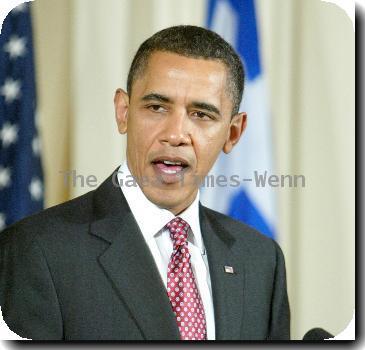Skeptics on Capitol Hill question Obama’s choice to coordinate US intelligence operations
By Kimberly Dozier, APSaturday, June 5, 2010
Fight ahead for Obama’s intelligence chief choice
WASHINGTON — He’s the right guy to ride herd over America’s intelligence operations. Or he’s a good guy, but the wrong one for that tough job.
Those warring opinions emerged about James R. Clapper after President Barack Obama said Saturday he wants the Pentagon’s current intelligence chief to serve as director of national intelligence — the fourth since the post was created in 2004 — and wants the Senate to confirm him quickly.
“Eminently qualified,” Obama described the blunt-spoken retired Air Force lieutenant general, offering his “complete confidence and support.”
Those who know Clapper, 69, and have worked with him during his long career in public service say he’s never shied away from a fight. That’s just what he may get from senators who will decide whether to put him in a job that comes with an unforgiving mandate, as explained by Obama: ensuring the 16 spy agencies work “as one integrated team that produces quality, timely and accurate intelligence. Let’s be honest — this is a tough task.”
A preview of the Capitol Hill obstacles? “He’s a good guy, but the wrong guy,” said the top Republican on the Senate Intelligence Committee, Sen. Kit Bond of Missouri.
It’s a thankless job that has challenged the first three directors. Many intelligence and administrative experts believe the role was ill-conceived when it was set up as part of the post-Sept. 11 reforms in 2004.
Clapper would succeed retired Adm. Dennis Blair, who resigned after frequent clashes with the White House and other intelligence officials. Clapper has held the Pentagon intelligence job longer than expected, at the request of Defense Secretary Robert Gates.
A Vietnam veteran, Clapper once directed the Defense Intelligence Agency, which often works closely with the CIA. He was the first civilian director of the National Geospatial-Intelligence Agency, which analyzes imagery such as satellite pictures or video taken from aircraft. In between, there were a few years in the private sector focusing on intelligence issues.
Gates likes Clapper, defense officials say, because he’s known as always respectful, but always direct.
“He possesses a quality that I value in all my advisers: a willingness to tell leaders what we need to know even if it’s not what we want to hear,” Obama said in a Rose Garden ceremony Saturday.
In private, Clapper has faced off with lawmakers, sometimes resorting to colorful language to make a point. Those prickly relations may come back to haunt him as he awaits confirmation.
Bond said Clapper would be outmaneuvered in office, facing off against Obama’s top counterterrorism adviser, John Brennan, and CIA Director Leon Panetta. Brennan and Panetta have the president’s ear, and carte blanche entry to the Oval Office, Bond said.
Sen. Dianne Feinstein, who leads the Senate committee, has said it would be better to have a civilian in the intelligence job. Feinstein, D-Calif., and Bond had called for Panetta to shift over.
Panetta said in a statement Saturday that “few people have more intelligence experience” than Clapper. A senior administration official insisted that Clapper has worked well with Panetta and other intelligence chiefs — and wouldn’t have taken the job if he thought he didn’t have entree.
The official, who spoke on condition of anonymity given the sensitivity of the job discussions, said Obama had a long talk with Clapper about the job May 5 — more than two weeks before Blair announced his resignation — then Clapper followed up with a memo outlining his view of the position.
Obama noted that the Senate has voted to confirm Clapper for senior positions on four separate occasions. “Given the importance of this position, the urgent threats to our nation, and Jim’s unique experience, I urge the Senate to do so again and as swiftly as possible,” he added.
In an earlier post at the Pentagon, Clapper went head to head with former Defense Secretary Donald H. Rumsfeld. Ironically, it was over whether the director of national intelligence should be a strong position, usurping some of the Defense Department’s authority.
Rumsfeld said no. Clapper said yes. Clapper lost both the argument and —later — his job.
Blair, Obama’s first intelligence chief, found himself increasingly on the outs with the White House, clashing directly with Panetta in turf battles that former CIA official Brennan ultimately had to settle, almost always in Panetta’s favor.
One senior official who worked for Blair said he and his aides were frustrated with what the official called the lack of guidance from the White House. The official, speaking on condition of anonymity because of the issue’s sensitivity, said that he and Blair likened their situation to an invisible dog fence. He said they would joke to each other that they never knew where the no-go lines were “until we got zapped.”
The director isn’t a Cabinet member and lacks much budget authority. One former CIA chief, retired Gen. Michael Hayden, said the intelligence director is basically a “convener in chief.”
“These are birth defects in the position itself,” not in the person trying to do the job, agreed John Hamre, a former deputy defense secretary who’s president of the Center for Strategic and International Studies.
But Hamre said these are some of the very important, though arcane, internal issues that Clapper is well suited to tackle.
Hamre cited the different ways that intelligence agencies treat suspected terrorists living inside the United States. “Some automatically treat them as if they are U.S. citizens, with the same privacy rights as U.S. citizens,” he said, simply because of their presence in the country.
“Normalizing the agencies so they operate the same way, agency to agency — that’s clearly the kind of thing Clapper would like,” Hamre said. “Jim’s a manager. He’ll try to understand what’s working or not working.
“It’s not easy,” he said, “but it’s the kind of thing Jim Clapper is good at.”
Associated Press writers Mark S. Smith, Julie Pace, Matt Apuzzo and Adam Goldman in Washington and Anne Gearan in Singapore contributed to this report.
Online:
Clapper biography: tinyurl.com/2d8wj2c
DNI: www.dni.gov/
Tags: Barack Obama, District Of Columbia, Intelligence Agencies, North America, United States, Veterans, Washington




